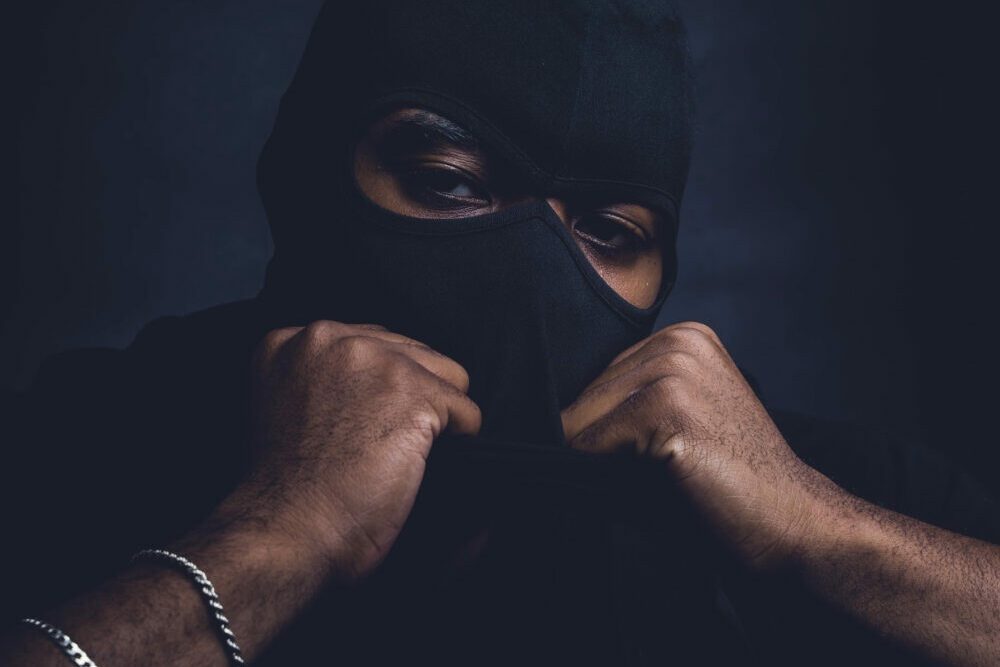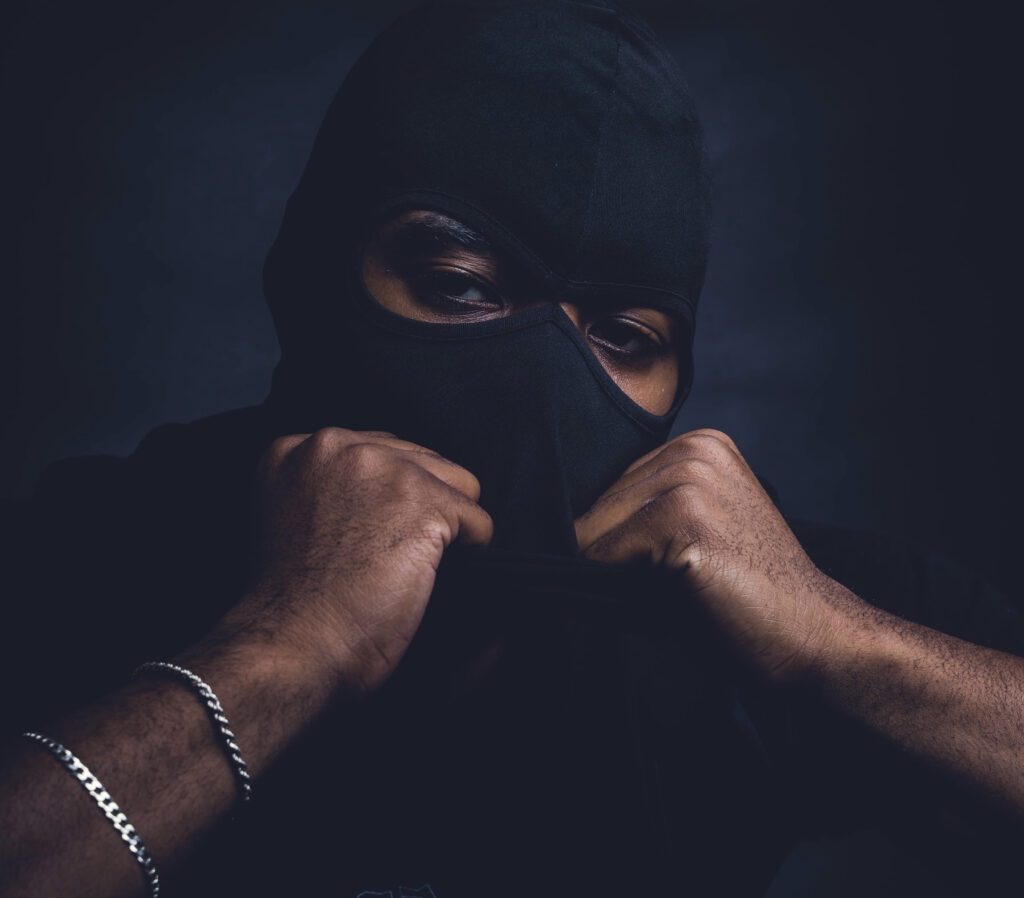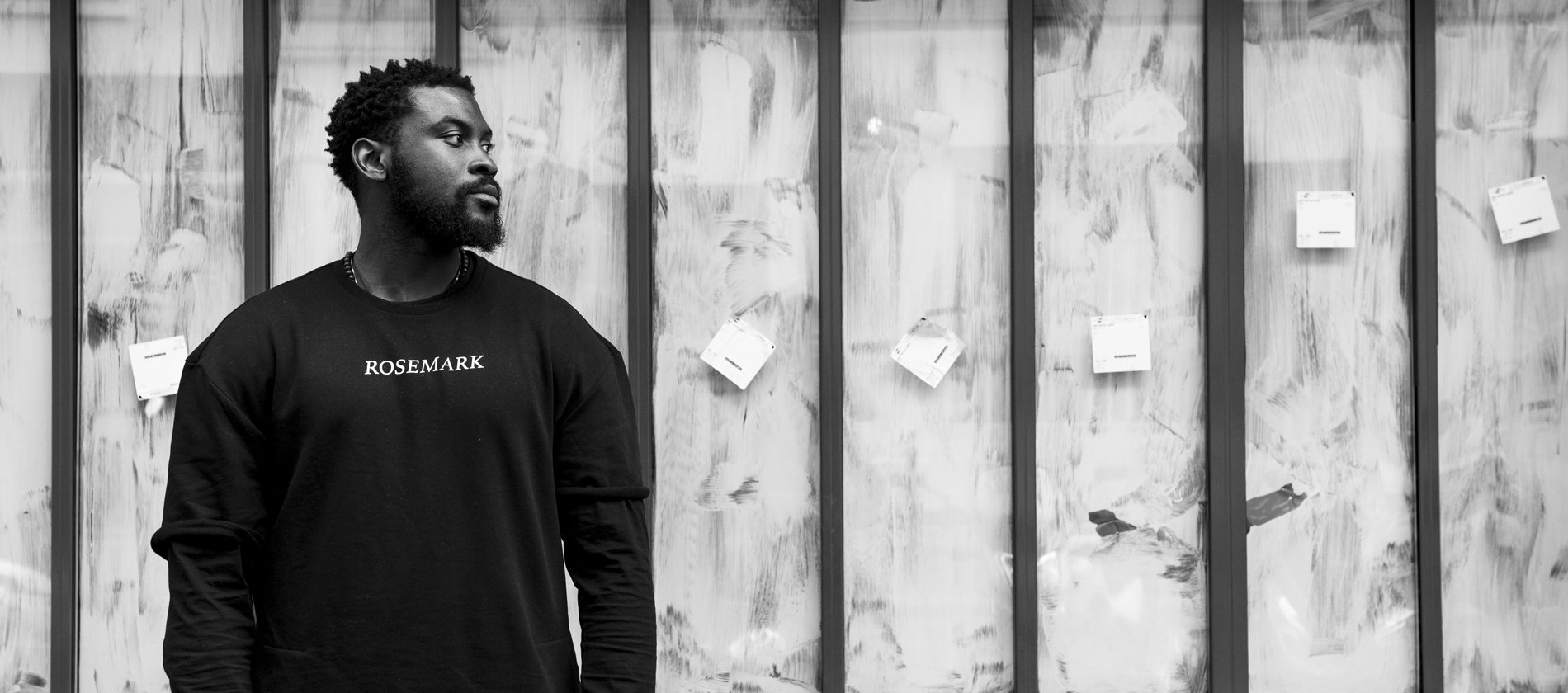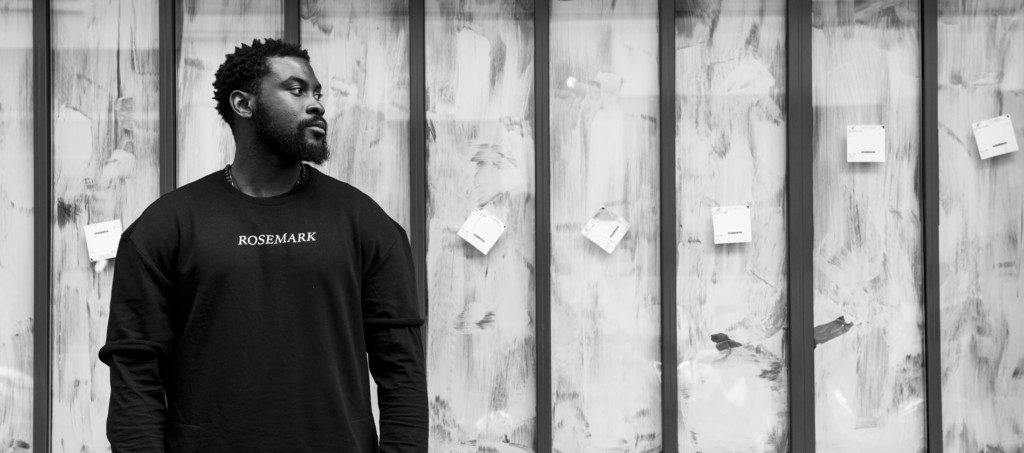

On her full-length debut LOOM, Franco-American producer/composer Uèle Lamore tells a story that is actually as old as time; in eleven tracks, she charts a loose history of the primordial beginnings of life on Earth. Echoey percussion, enigmatic synth and spidery guitar kick things off on previous single “The Dark,” while spoken word by Parisian poet Gracy Hopkins narrates the potential evolution of humanity over aching strings on “The First Tree.” While the album, set for a January 28th release via experimental Sony Music imprint XXIM Records, is certainly cinematic, it’s never too dense or arcane.
“I just wanted to put together a record that I thought would be super fun to play live with an electro-rock band, with guitars and bass. And also I thought that it would be good to try to make a record that everybody understands but offers something different to everybody,” Lamore tells Audiofemme. “If you come from hip hop there are things you understand, but you discover some elements that come more from electronic; if you prefer neoclassical or ambient there are some tracks you’re going to like and I’m going to show you stuff that comes from rock. I wanted to craft sounds that would be interesting but accessible and enjoyable for most people. It’s a record for people that like music, basically.”
In fact, Lamore’s next single, “Breathe,” was directly inspired by skateboarding and indie pop icons like Phoenix and Air. “I was near a skate spot in Paris, doing some field recording – I do my own field recordings to insert into tracks,” Lamore says. “When I was recording them I was like, man, it would be so cool to do this track with guitars and everything. I was really thinking about Phoenix; I really wanted to be super ‘French touch’ about it. I only had the backbone of the track and I composed it thinking about that and putting the sounds of the skaters inside it. I just wanted something really fun and upbeat to contrast with other tracks on the record.”
The video, directed by Yannick Demaison and Alexis Magand of Biscuit Productions, takes these seeds of inspiration and sets fire to them – literally. Premiering today via Audiofemme, the black and white clip compiles stirring images of a girl gang of skaters (played by Camille Fleurence, Océane Pasquet, Joana Dumoulin, Tiffaine Voisin, Emmy Jardoux, and Elissa Karami) kick-flipping across a skatepark with their decks consumed by flames.
Lamore says she used to skate herself, but another hobby took precedence: music. Picking up an acoustic when she was only nine, she quickly moved on to electric guitar and then, via YouTube videos and how-to magazines, began teaching herself production techniques and how to make beats in middle and high school. She left France to study guitar at Musicians Institute in Los Angeles, then earned a degree in composition and conducting from Berklee College of Music in 2016, and since 2019 has been an associate conductor, orchestrator and arranger with the London Contemporary Orchestra. Her debut EP TRACKS, released in 2020, was inspired by train travel across Europe and Japan, some of the songs even named for specific locations, all of them imbued with a sense of romance and movement.
Forward momentum is intrinsic to the way Lamore builds her compositions. “I need to know where the song is going, from Point A to Point Z. So I sketch out the whole melody from the beginning to the end basically,” she says of the process. “Then I pay a lot of attention to sound design – that’s an aspect that’s often overlooked in production, all these little sounds that don’t have any importance but really add a universe to your song.” That’s where her field recordings – of skaters, birds, church bells, crowds, and more – come into play, adding richness and context into each of the songs.
With such dramatic world-building, it’s not surprising that Lamore also composes music for film (she just finished working on the soundtrack for a forthcoming British movie about young cannibal women with discerning tastes). But whether she’s composing for films or for her own albums, Lamore says she always has a visual in mind.
“One of the most vivid memories that I have, that made me want to do music, is that I was lucky to experience MTV when they still played a lot of these crazy music videos in the 2000s, where the budget was probably insane, with helicopters and real stories happening,” she explains. “That’s how I digested music at first, so I think that for me it has always been connected with the idea of telling a story and the very visual aspects of that, because I discovered music through music videos. For me, it’s super important to tell a story, and try to paint something, with sound. I don’t think I can do it any other way basically – it’s kind of hard for me to do super abstract stuff.”
Still, LOOM started out with an entirely different concept behind it, and a lofty one at that. Upon returning to Europe after college, Lamore said she had time on her hands and wanted to make a succession of “super nerdy” songs about “complex stuff… ecosystems and molecules and bacterias.” There was no plan to release it as an album, really. In the meantime, she made connections and collaborated with musicians like Moor Mother, Alfa Mist, Max Cooper, Etienne Daho, Silly Boy Blue, Drum & Lace, Yan Wagner, and more. But after signing her record deal, she revisited those demos.
“I was like, waaaahhh man, I hate this! It sucks so bad!” she recalls with a laugh. Lamore didn’t despair or start from scratch; she began re-working the material track by track without trying to communicate the scientific narrative, but kept things in the same order for continuity’s sake.
“The title of each track became kind of like a metaphor. ‘The Dark’ can be something that happened in your life and ‘Breathe’ can be a kind of feeling that you can have. They all become mirrors that everybody can relate to,” Lamore explains. “I purposefully didn’t want to give a true symbolic [meaning] to everything because I want it to become everybody’s personal object and interpret it the way they want.”
To make the songs even more accessible, Lamore took a cue from landmark 1998 Massive Attack album Mezzanine, which featured guest vocalists Elizabeth Fraser of Cocteau Twins, Horace Andy, and Sarah Jay. “There needed to be vocal tracks [on LOOM] because it’s the easiest way for most people to digest music,” she says simply. “I had this list of people that I knew from different projects or from word of mouth or I had seen them perform live, and I always kept in the beck of my mind that I would love to do something with them.” Besides Hopkins, these include the honeyed vocals of UK singer Cherise on hypnotic cut “Pollen,” a wistful Ana Benabdelkarim (a.k.a. Silly Boy Blue) on atmospheric album closer “Warmblood,” and her own manipulated vocal on “Currents.”
With the band she’s assembled, Lamore should have no trouble translating these kinetic, mesmerizing tracks on tour, even if they have to get creative with vocal features and samples. It’s how she originally envisioned sharing them, after all. Japanese video and performance artist Akiko Nakayama, who directed “The Dark” video, has created visuals for the show.
While LOOM positions Uèle Lamore as a genre-defying producer well worth keeping an eye on, she still has humbling moments. Recently, she attempted to show a young skateboarder some of her old tricks. “I had forgotten that I hadn’t skated in like ten years right? So I go, ‘Yeah kiddo, this is how you do this, let me show you,’ and I took his board… and I just like completely fall,” she laughs. “Him and his little friends started making fun of me and my friends. My ego just fell in the toilet.”
Follow Uèle Lamore on Instagram and Facebook for ongoing updates.





